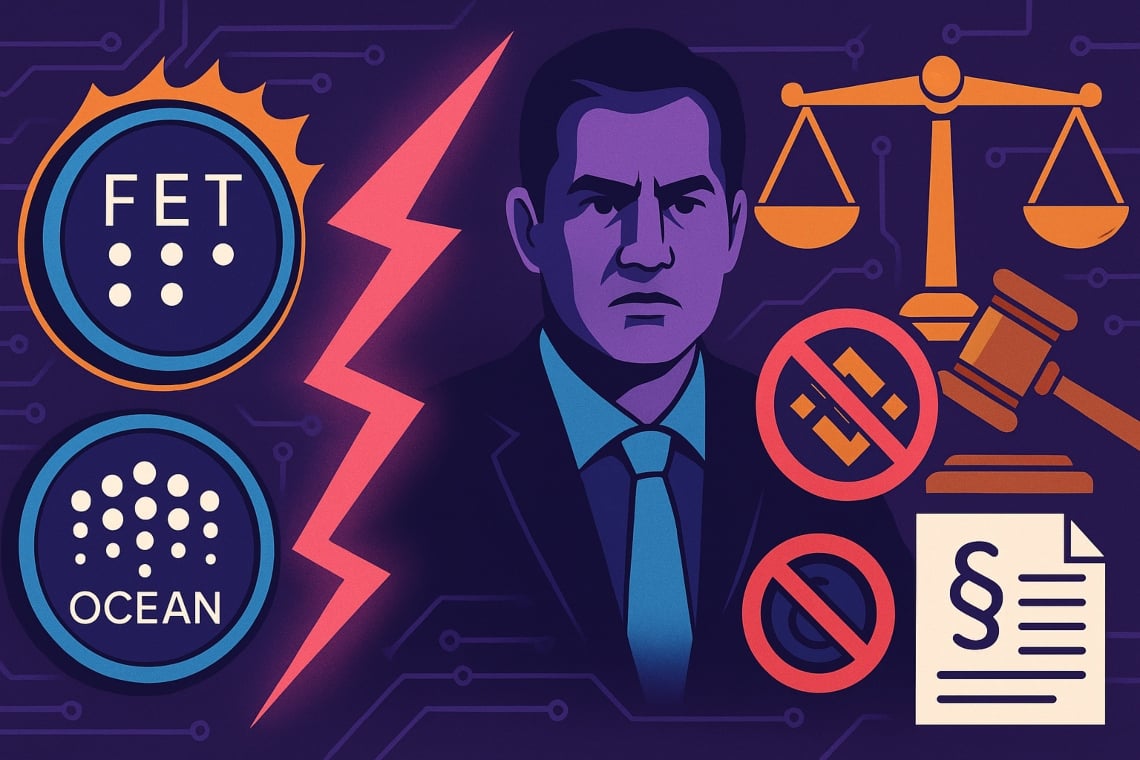The fetch ai dispute erupted after Fetch.ai CEO Humayun Sheikh accused Ocean Protocol of minting and swapping large OCEAN supplies, prompting Binance deposit limits and legal threats.
What triggered the fetch ai dispute and the ASI Alliance token merger?
The row traces back to the ASI Alliance token merger that united Fetch.ai, Ocean Protocol and SingularityNET under a shared framework in 2024.
Sheikh publicly alleged that Ocean minted 719 million OCEAN in 2023 and that 661 million were swapped into roughly 286 million FET in July 2025, raising concerns over undisclosed transfers and liquidity moves. (ASI Alliance timeline)
What onchain token liquidation evidence exists?
Analysts point to on-chain traces showing large OCEAN-to-FET swaps and subsequent transfers to centralized venues. That onchain token liquidation evidence is central to Sheikh’s claims and will be scrutinised in any adjudication or legal action.
Tip: Review timestamped on-chain transfers and exchange deposit records when building a factual case.
In brief: The dispute originated from alleged pre-merger minting and swap activity within the ASI Alliance, which now underpins competing factual narratives and potential arbitration.
Did Binance impose an OCEAN deposit restriction and why?
Binance announced that ERC-20 deposits for OCEAN will cease on October 20, 2025; it warned that “ERC-20 deposits made after Oct. 20 will not be credited and may lead to asset loss.” (Binance notice)
How did FET token transfers move to exchanges?
Sheikh said large portions of the converted FET were moved to exchanges and market makers, creating pressure on liquidity and price formation. Observers argue that rapid fet token transfers to custodial venues can prompt custodians to apply risk controls.
Note: Exchange actions often reflect internal compliance reviews rather than final determinations of wrongdoing.
In brief: Binance’s deposit restriction tightened access for affected tokens and signalled an operational response while investigations or risk assessments continue.
Could the dispute become class action crypto lawsuits?
Sheikh has pledged to fund class-action litigation across multiple jurisdictions and asked holders to gather evidence; Ocean Protocol has denied the allegations and said its treasury remains intact.
Ocean said on X that “Ocean is working and active,” and the team offered to waive confidentiality around an adjudicator’s findings. (Ocean Protocol statement)
What governance steps could follow?
Potential outcomes include arbitration under the merger agreement, civil suits, or regulatory inquiries. Class action crypto lawsuits would hinge on provable investor harm and jurisdictional acceptance of token-based claims.
Tip: Holders should preserve transaction receipts and timestamped communications to support any future claims.
In brief: Legal threats increase uncertainty; resolution may be decided in arbitration or court and will depend on on-chain audit trails and admissible evidence.
How investors and developers should react: verify pending deposits, follow official channels for updates, and consult legal counsel where appropriate.
For further background and regular updates, see our analysis of token swaps and custody implications on Cryptonomist. (analysis on token swaps and how to secure deposits)
